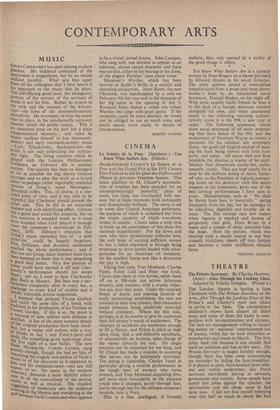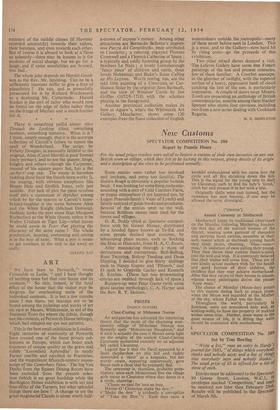THEATRE
The Private Secretary. By Charles Hawtrey. (Arts.)—Alice Through the Looking Glass. Adapted by Felicity Douglas. (Prince's.) ME London theatre is having a false Christmas with The Private Secretary at the Arts, Alice Through the Looking Glass at the Prince's and Charley's Aunt just about to arrive at the New. The conventional children's shows haVe almost all faded away and some of them did badly in com- petition with ice-pantomimes and circuses. Yet here are managements willing to hazard big money on seasonal 'entertainment out of season, which has no such attraction as strawberries and cream in March. The Arts takes least risk because it can usually find itself an audience and has so few seats. The Private Secretary is staged lavishly enough, though there has been some economising on costumes by hiding the hunt-breakfast. It is played as pure, hard-hearted farce with- out any subtle undertones, like Punch cartoons mercilessly jeering at servants, governesses and curates, Some people have noted that jokes against the spinster, the spiritualists and the clergy seem in bad taste now. I did not find myself worrying over this half so much as about the bad
manners of the middle classes (if Hawtrey reported accurately) towards their tailors, their footmen, and even towards each other. But of course it is absurd to look at a farce so solemnly—there may be lessons in it for students of social change, but we go for a laugh, and if some sensibilities are bruised, too bad.
The whole joke depends on Harold Good- win as the Rev. Mr. Spalding. Can he be a sufficiently innocent duffer to give a hint of , plausibility ? He can, and is powerfully persecuted for it by Richard Wordsworth as a deafening Mr. Cattermole. Harold Kasket is the sort of tailor who would now be found on the edge of Soho rather than
• * *



































 Previous page
Previous page